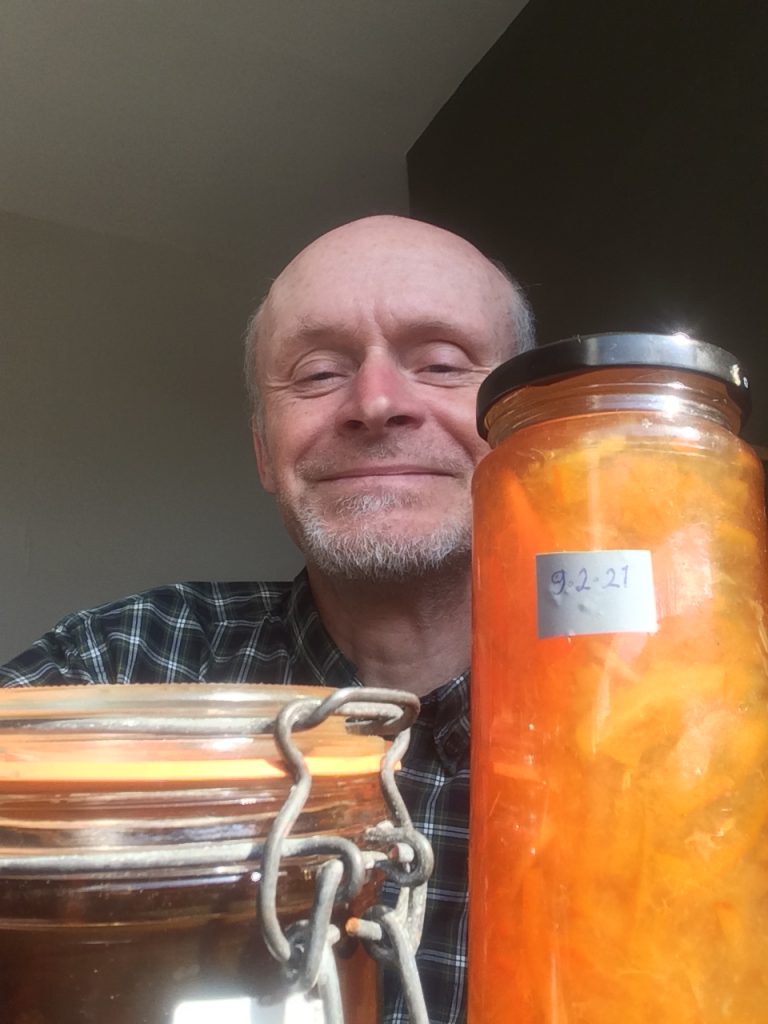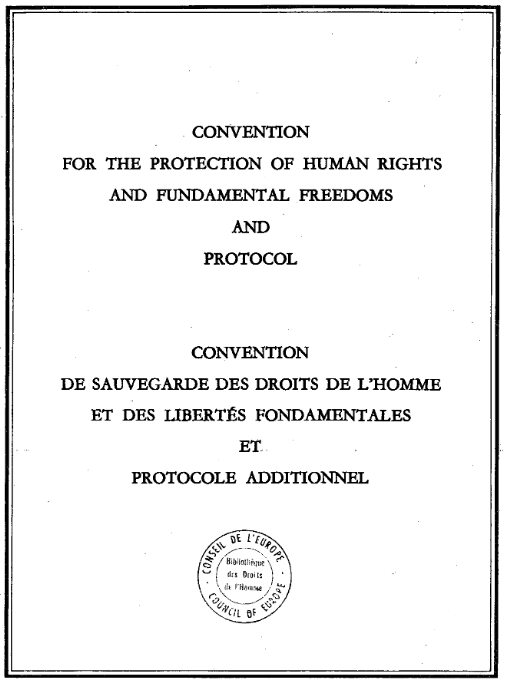Academic Corner: Interview with Dan Wilsher
From marmalade to tennis, Daniel Wilsher, a first-tier tribunal judge and our immigration professor, shares his views on immigration procedure and policy. (Ed’s note. This interview took place in April 2021 but for various reasons, mostly my disorganisation, has just been published for the first time now!)
Let’s start. What is a recent accomplishment you are proud of?
I think my most recent achievement was to make about 12 jars and marmalade on the weekend. I was quite pleased with that. A very dark old-style English stuff, you know, very heavy sort of Seville oranges. It was interesting. It’s a classic lockdown thing to start doing that sort of stuff.
Excellent, all 12 jars for yourself?
Haha, I don’t think I’ll get through 12 jars. I’ve got a friend with a birthday on Monday, so I think she’ll get one.
Great, I look forward to receiving mine soon! Now, can you tell us about your career path?
I did a law and economics degree, and then I trained as a solicitor. Afterwards, I became an academic, though I’d always enjoyed practising and certainly in immigration. Luckily, in the UK, you have a part-time judicial appointment system, which has become a large part of the judiciary. So, now I’m an immigration judge in a first-tier tribunal, which is the lowest level of the judicial hierarchy.
And on average, how many cases do you hear a month?
I am sitting twice a month for the moment. I’d probably be hearing four or five cases a month. Afterwards, you get ten days to write your decision, which can be 10 to 20 pages long. They’re fully reasoned and quite detailed sometimes.
Have any of your decisions been overturned?
Every year you will get a couple. Some, I suspect, have quite a few, whereas I, while being modest of course, have very few decisions against me. But when you do, you have to eat humble pie! You have to listen to what the upper tribunal says because they go over what you’ve done quite carefully and assess whether you made an error of law and, if you did, whether it was material.
That’s not so bad! Do the upper tribunals notify you when this happens?
Yes, we get notified through the post, and we can always tell what the letter looks like. When you do get one where your decision has been challenged, you have to read it carefully. Sometimes you agree, sometimes you don’t, but obviously, you need to learn where you’ve gone wrong.
I’m doing your Immigration course now, and between statutes, case law, home office policy, and various pieces of guidance, I feel like the law is all over the place! How do you navigate changes and updates?
Well, we get training from the judiciary every year, and we get updates sent to us. Sometimes you have to check yourself if you come to a case you’re not familiar with. Other times you have to make yourself aware of what the law is because the parties don’t. You have to fill in the gaps of what they present to you.
Yes, that makes sense. Now, can you tell us about an interesting case you’ve heard?
There was an interesting case I had a couple of weeks ago following a change in the law. For many years, people who had life-threatening illnesses and no longer had lawful stay would challenge their return to countries if they could not access medical treatment there. The European Court of Human Rights required the illness to be very serious, whereby someone would inevitably die rapidly. As a result, the statute did not cover many cases, particularly HIV and AIDS, which is a serious condition if untreated, but if you do get the treatment, you can live for many, many years. So, there were many cases where people would try and challenge their removal to countries that did not have the HIV medication available that they were receiving in Britain. Of course, this raised a serious issue about the resources of the National Health Service being used by people who may have arrived just by accident or illegally. So, this is a difficult issue. It is now the case that if you were to experience a significant reduction in your life expectancy because treatment wasn’t available in your country, that would be a violation of your right to not suffer inhuman and degrading treatment.
I had a case on this come up last month, and it was the first one I’d seen since the change in the law. It was the case of a woman who was going to be sent back to Uganda. Previously it would have been an unsuccessful case, but with this new law from the courts above, it was successful because there wasn’t any evidence that the treatment she was getting was available in Uganda. Quite a dramatic change for someone who possibly (on evidence) would have found it very difficult to survive. So, you know, you can see quite significant differences arising from case law.
Do you ever feel like your judgments or sentences are unfair because the appellant has had poor legal representation?
This is an issue, yes. You see cases from time to time when you know that the evidence that would potentially help an appellant succeed has not been appropriately gathered or where the legal representative has not done a great job. As a judge, you might dismiss the appeal, but you could still say, “well, if I’d seen this evidence or that evidence, then the result might be different”. I wouldn’t say it was a huge number of cases, but it is certainly an issue from time to time.
Interesting, I guess that highlights some flexibility in your role as a judge; even though you are supposed to be adversarial, in some circumstances, you can still be inquisitorial. So many things to consider when acting as a judge! Do you also have to factor in external political pressures?
No, the government will give its view about what the public interest requires, and the immigration rules will reflect the political priorities of the government. But in the end, we are independent of the government and have to follow Parliament’s statutory framework, which says that we have to follow the European Convention on Human Rights. So, whilst the government of the day may try and give us a steer, until the statute is changed, we will follow the human rights standards set out in the convention.
Of course, the trusty separation of powers keeping things in check! I’m sure it’s quite a challenge for the government, though, trying to appeal to the public. Do you think the public needs more education on immigration policy?
Yes. It would be interesting for the public to observe the cases that we hear and see the care that we take, rather than just a snapshot from a headline from the newspaper, which may have taken some aspects of the case out of context. Then perhaps the public would have a little bit more confidence in what we’re doing. Because it’s not something that is done loosely or cavalierly, you know, judges do take great care with their decisions. I think a reasonably neutral member of the public looking at most of our cases would probably feel the judge did a good job.
Yes, definitely. Just this week, you walked us through two of your recent decisions and highlighted the tedious balancing act you have to do. That leads to my last question, what do you find is the most challenging part of being an immigration judge?
I think the hardest part now is in human rights cases. There are lots of guidelines from other courts on how you balance the public interest in maintaining immigration control against the individual rights of that person and their family. Still, when you come down to each decision, it is quite fact-specific, and it requires us to strike a fair balance which can be quite complicated to do.
For sure, well, I think the class agreed with both decisions in the end, so in our educated opinion, you’re doing pretty well! Now, just out of curiosity, what is the first thing you plan to do out of lockdown?
My big thing will be to get out there and play a game of tennis because that’s very close by, and I’ve played every week, twice a week, for years. To get out and play tennis again, that’s going to be nice.
That sounds lovely! Did you watch any of the Australian Open?
You know, I don’t have a TV platform to get live sports. Probably a good thing because I know people who have it never stop watching it.
Haha, well, between making marmalade, teaching, acting as a judge, and playing tennis, surely there is no time for watching sports! Many thanks to Daniel for taking the time to conduct this interview!
Thanks to Melissa Dubé (member of the Lawbore student journalist team) for this excellent insights into the part-time judiciary and immigration law via this interview with Dan Wilsher. Mel is now a third year LLB student and considering a future in criminal practice.




